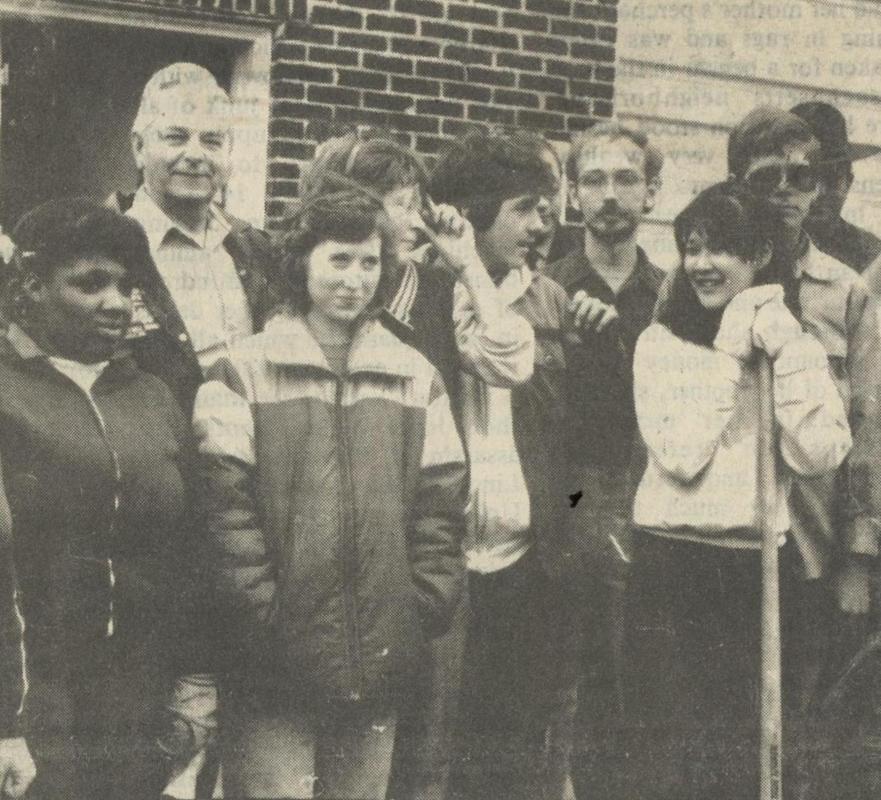News of the devastation inspired empathy and action among many people in the United States, including West Virginians. Seven years earlier, the state had experienced the 1985 Election Day floods, the worst flooding disaster in the state’s history. A tropical front pulling moisture from Hurricane Juan stalled over West Virginia, dropping immense amounts of rain over a period of 24 hours and causing many of the state’s rivers to swell to historic levels. By the end of the ordeal, 62 people had lost their lives in the states of West Virginia, Virginia, and Maryland and damages were estimated to total $1.4 billion. The recovery from these floods involved numerous aid organizations and government programs and spanned decades in some parts of the state.
Senator Byrd’s role in responding to Hurricane Andrew went beyond referring the offers of resources and volunteers to the disaster relief effort. As chairman of the Senate Appropriations Committee, he had a direct role in crafting the spending bill to support the recovery. Two weeks after the disaster, the House and Senate agreed to an aid package totaling $11.1 billion, establishing Andrew as one of the most expensive hurricanes in U.S. history.
In the months after Hurricane Andrew swept across the southeastern United States, another unfortunate parallel to the West Virginia floods emerged, delays in the delivery of disaster relief. In 1985 and 86, Senator Byrd and his colleagues in Congress employed every means necessary, including loopholes to speed recovery resources to the state. A provision had to be made to exempt West Virginia from matching funds requirements that it could not afford, allow Federal Emergency Management Agency (FEMA) support to be released the state. In the coming years, poor planning and misinformation regarding flood insurance programs caused significant controversy in some of the hardest-hit areas. Similarly, in the aftermath of Hurricane Andrew, criticism of FEMA for being too slow to respond was expressed in editorials and public statements across the country, including in several major West Virginia papers. The lessons of the West Virginia floods and Hurricane Andrew have had a profound impact on the relief policy and public response to natural disasters. In the case of Florida where Hurricane Andrew produced its most severe damage, the state has passed numerous laws and instituted drills for emergency evacuations and recovery. These efforts have produced greater public awareness and, in the case of subsequent hurricanes, more compliance to follow warnings and safety orders. In West Virginia, the floods of 1985 led to massive infrastructure improvements, many supported by Senator Byrd to building protection walls and levees as well as early warning systems. However, the need for continued review and improvement of disaster relief policy continues. In the wake of disasters such as Hurricane Katrina and the devastating 2017 hurricane season, similar criticisms continue to be raised about the expediency of aid and the amount of resources provided for communities impacted by natural disasters. Another element of these stories has also remained true, that in the face of major disasters, people join their efforts and volunteer to support communities where aid is most needed, just as West Virginian’s did for the victims of Hurricane Andrew in 1992. Comments are closed.
|
Welcome to the Byrd Center Blog! We share content here including research from our archival collections, articles from our director, and information on upcoming events.
Categories
All
Archives
July 2023
|
Our Mission: |
The Byrd Center advances representative democracy by promoting a better understanding of the United States Congress and the Constitution through programs and research that engage citizens.
|
Copyright © Robert C. Byrd Center for Congressional History and Education
|


 RSS Feed
RSS Feed
